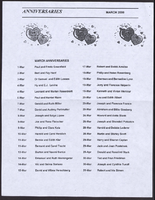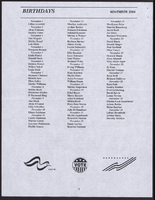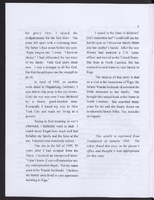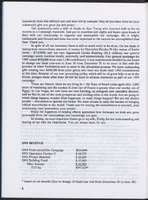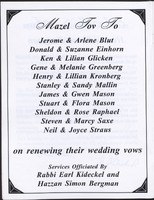Temple Sinai
Temple Sinai is a Jewish Reform congregation in Las Vegas, Nevada. It was founded in 2007 when Temple Beth Am and Congregation Adat Ari El merged. Temple Sinai has over 300 member families and its sub-groups include a Sisterhood, Men’s Club, Chavurah, Youth Group, and committees. Kenneth Segel was the first rabbi of Temple Sinai and was succeeded by Rabbi Malcolm Cohen in 2009.
Source:

